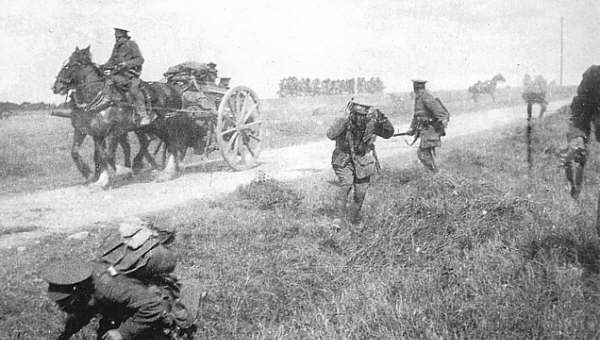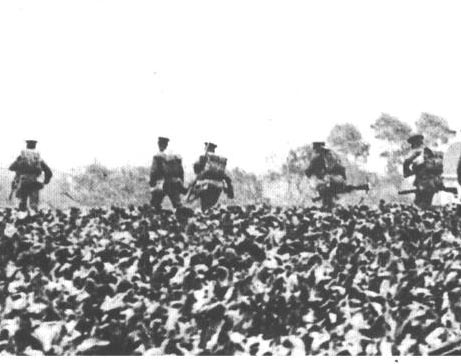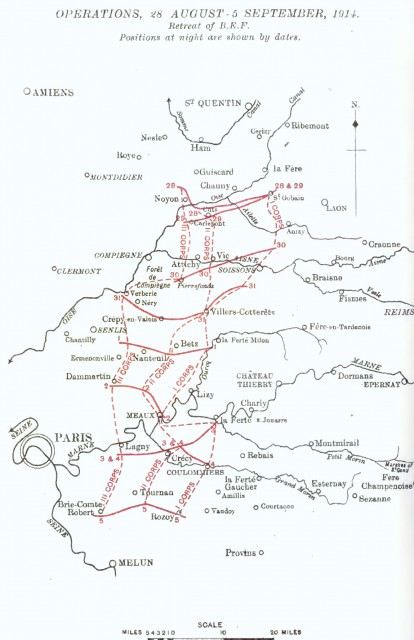
During World War One, the retreat from Mons, also known as the Great Retreat, was the Allies’ retreat to the River Marne, at the end of the summer in 1914. The Allies had been defeated on the Western Front by the German army in two huge battles.
Troop numbers were mainly to blame, since the Germans had more than a million troops on the front, whereas the Allies only had 80,000.
The British Expeditionary Force had to march around 300 kilometers from Mons in Belgium to south of the River Marne, located south east of Paris.
It was a long, exhausting march in sweltering temperatures, and the soldiers had to carry massive weights of equipment and supplies. The troops suffered severe hunger and thirst and were only getting around four hours of sleep per night. Blisters from their boots meant that many soldiers took them off and simply walked in their socks.
The route was so long that many troops lost their way and became detached from the main expedition. Some tried to flee across the border to Belgium or Holland, while others just lost their way in the French countryside.

Towards the end of August, a battalion was ordered to take up the rear of the expedition and fend off advancing German troops. There were around 800 Allied troops who knew the Germans would outnumber them, but they came face to face with an onslaught from masses of German soldiers.
Even though commanders sent a message to tell the final troops remaining to retreat, the message was never received on the front line, so the Allied troops continued to fight on. By that evening the four remaining officers decided to surrender. 450 soldiers were taken prisoner by the Germans.
Around the same time, the Connaught Rangers were based at Le Grand Fayt and undertook the same rearguard action, but were eventually surrounded in the village. Around 280 troops were taken prisoner by the Germans.
Some troops who came away or got lost from their battalions were executed by the Germans, since they simply refused to surrender – including British and Irish soldiers, The Irish Times reports.
One soldier, Private Robert Digby, was being sheltered by a French family, where he fell in love with the daughter and they had a child in 1915. But Digby, along with three other soldiers, was arrested by the Germans and shot.
